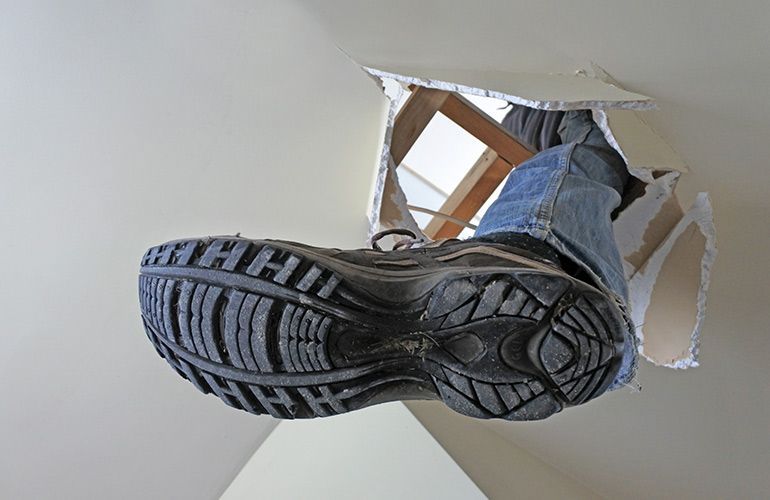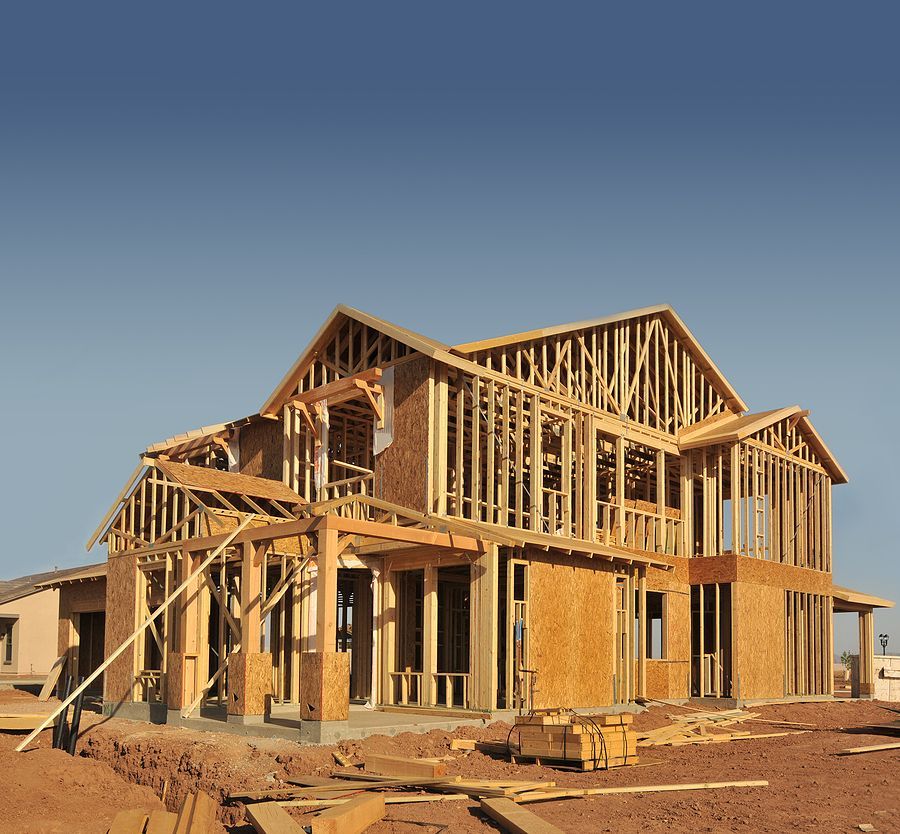Ross Nussle
April 24, 2025
Navigating Dallas and Fort Worth’s Dynamic Climate for a Thorough Home Inspection
Cities like Dallas, Fort Worth, Garland, and Mesquite experience a wide range of weather conditions throughout the year, including:
- Hot Summers: Temperatures often exceed 100°F in places like Arlington and Richardson, with high humidity levels.
- Severe Storms: Spring and fall bring thunderstorms, heavy rain, and occasional hail to Plano and Frisco.
- Winter Freezes: Rare but impactful cold snaps can drop temperatures below freezing in Irving and McKinney.
- Drought and Flood Cycles: Prolonged dry spells in Carrollton can alternate with heavy rainfall in Grand Prairie, affecting soil and foundations.
Each of these conditions can affect the home inspection process, from scheduling in Fort Worth to identifying specific issues in a Dallas property.
How Weather Impacts Home Inspections
Weather conditions in cities like Dallas, Fort Worth, and Grapevine can influence various aspects of a home inspection, including safety, accessibility, and the ability to identify structural or system issues. Below are the key ways weather affects inspections:
1. Extreme Heat and Inspector Safety
Summer in cities like Arlington and Allen can be brutal, with heat indices often climbing above 105°F. Inspectors working in attics, crawlspaces, or on rooftops in Dallas or Fort Worth face risks of heat exhaustion or heatstroke. This can limit the time spent in certain areas, potentially affecting the thoroughness of the inspection.
- Impact: Attics in homes, where insulation and HVAC systems are often located, can reach temperatures exceeding 130°F. Prolonged exposure may force inspectors to take frequent breaks, extending the inspection timeline.
- Tip for Homebuyers/Sellers: Schedule inspections early in the morning during summer months in Irving or Mesquite to avoid peak heat. Ensure the home’s HVAC system is running to keep indoor spaces cooler for the inspector.
2. Rain and Storm-Related Challenges
Spring and fall in Fort Worth, Dallas, and Frisco are notorious for severe thunderstorms, heavy rain, and hail. These conditions can complicate inspections in several ways:
- Roof Inspections: Wet or slippery roofs are unsafe for inspectors to walk on, delaying a critical part of the evaluation. Hail damage in Garland may also be harder to assess immediately after a storm.
- Drainage Issues: Heavy rain can reveal problems with a home’s drainage system, such as poor grading or clogged gutters, but it can also obscure other issues, like foundation cracks, if water pools around the property.
- Interior Leaks: Rain during an inspection can help identify active leaks in the roof, windows, or walls, providing valuable insight into the home’s condition.
- Tip for Homebuyers/Sellers: If rain is forecasted, ask the inspector to prioritize checking drainage systems and look for signs of water intrusion. Reschedule roof inspections for a dry day if safety is a concern.
3. Winter Freezes and System Stress
Though rare, winter freezes in Fort Worth, Arlington, and Richardson can expose vulnerabilities in a home’s plumbing, HVAC, and insulation systems. The infamous 2021 Texas winter storm highlighted how unprepared many homes in Dallas and Plano were for prolonged cold.
- Impact: Frozen pipes, inadequate insulation, or poorly maintained HVAC systems in Grapevine can become apparent during cold snaps. However, if an inspection occurs shortly after a freeze in Allen, temporary repairs may mask underlying issues.
- Tip for Homebuyers/Sellers: Ensure the home’s heating system is operational during winter inspections. Ask the inspector to check for signs of recent pipe repairs or insulation deficiencies.
4. Soil Movement from Drought and Flood Cycles
Cities like Dallas, Fort Worth, and Frisco sit on expansive clay soils that shrink during droughts and swell during heavy rains. This constant movement can stress a home’s foundation in Plano or Grand Prairie, leading to cracks or uneven settling.
- Impact: Inspectors may identify foundation issues more easily after heavy rain, when soil expansion is evident, but drought conditions can hide these problems. Seasonal weather patterns can also affect the accuracy of foundation level measurements in Irving.
- Tip for Homebuyers/Sellers: Request a foundation inspection by a structural engineer if the home shows signs of movement, especially after extreme weather cycles. Provide the inspector in with any history of foundation repairs.
5. Scheduling Delays
Severe weather, such as thunderstorms, tornado warnings, or ice storms in, can force inspectors to reschedule appointments. This can be particularly challenging in the fast-paced real estate markets, where tight closing timelines are common.
- Tip for Homebuyers/Sellers: Build flexibility into your closing schedule to account for potential weather-related delays. Communicate with your inspector in Frisco to prioritize critical components if time is limited.
Preparing for a Weather-Impacted Home Inspection
To ensure a successful home inspection in Dallas, Fort Worth, or surrounding cities like Allen and Richardson, consider the following steps:
- Monitor the Forecast: Check the weather a few days before the inspection and discuss contingency plans with your inspector.
- Maintain Accessibility: Clear debris from the roof, gutters, and drainage areas to help the inspector evaluate these systems, especially during rainy seasons.
- Address Seasonal Maintenance: Before the inspection, fix minor issues like leaky faucets or clogged gutters that could be exacerbated by weather.
- Hire a Local Inspector: Choose an inspector familiar with Dallas and Fort Worth’s climate and its impact on homes. They’ll know what to look for, from hail damage in Plano to foundation issues in Carrollton.
- Ask Questions: Discuss weather-related findings with your inspector to understand their severity and potential repair costs.
Conclusion
Weather in Dallas, Fort Worth, and cities like Frisco, Garland, and Richardson is as dynamic as the region itself, and it plays a significant role in the home inspection process. By understanding how heat, rain, freezes, and soil movement affect inspections, homebuyers and sellers can better prepare for a thorough evaluation. Partnering with an experienced inspector and planning around the weather can help uncover critical issues and ensure a smooth transaction. Whether you’re buying your dream home in Dallas or selling a property in Fort Worth, staying weather-savvy will keep your home inspection on track.

























